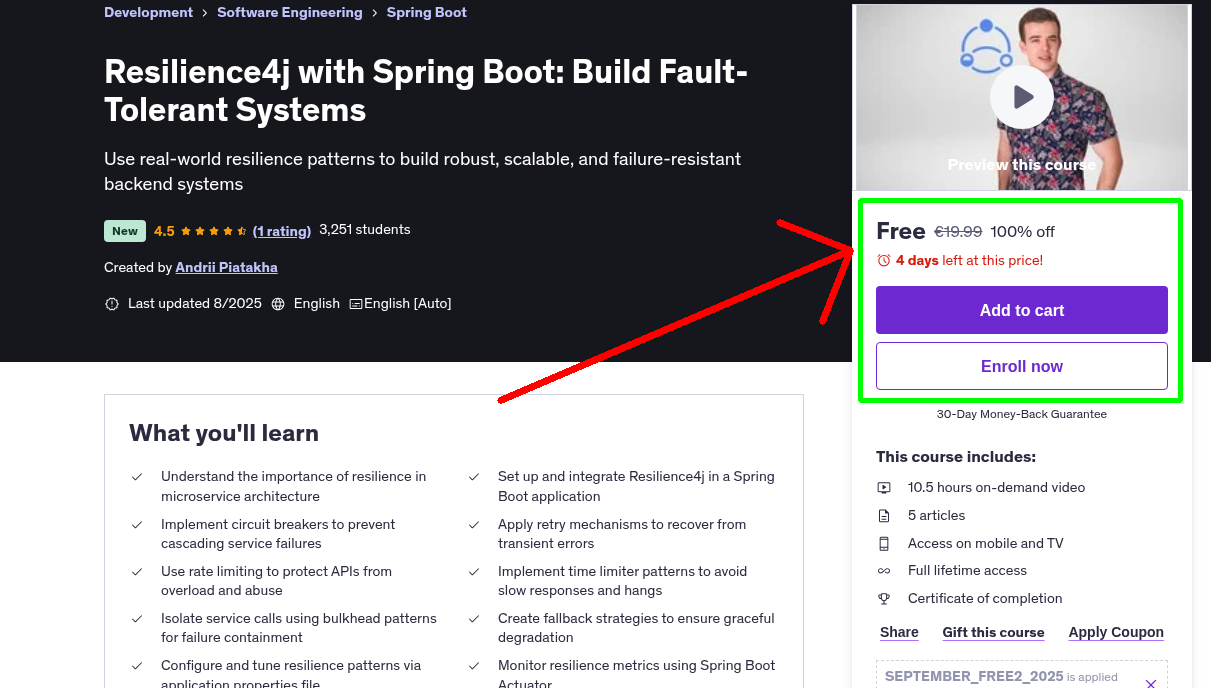
What You'll Learn
- Understand the importance of resilience in microservice architecture
- Set up and integrate Resilience4j in a Spring Boot application
- Implement circuit breakers to prevent cascading service failures
- Apply retry mechanisms to recover from transient errors
- Use rate limiting to protect APIs from overload and abuse
- Implement time limiter patterns to avoid slow responses and hangs
- Isolate service calls using bulkhead patterns for failure containment
- Create fallback strategies to ensure graceful degradation
- Configure and tune resilience patterns via application properties file
- Monitor resilience metrics using Spring Boot Actuator
- Write integration tests for fault-tolerant endpoints
- Chain multiple Resilience4j decorators (retry + circuit breaker, etc.)
- Handle exceptions and fallbacks programmatically and declaratively
- Build robust and production-ready Java microservices that can withstand real-world failure scenarios
Requirements
- Basic knowledge of Java programming
- Familiarity with object-oriented programming principles
- Understanding of REST APIs and HTTP communication
- Ability to run and test applications using an IDE (e.g., IntelliJ or Eclipse)
- Basic understanding of Maven or Gradle for dependency management
Who This Course is For
- Java developers who want to build fault-tolerant backend system
- Spring Boot users aiming to move beyond basic application development
- Backend engineers working with microservices and distributed architectures
- Developers interested in implementing real-world resilience patterns
- Software architects responsible for system reliability and uptime
- DevOps engineers looking to improve system stability and failure handling
- Teams building APIs that must remain available under stress or partial outages
- Anyone maintaining production-grade services that require robust fault tolerance
- Engineers preparing for system design interviews or technical architecture roles
- Developers transitioning from monolithic to microservice-based systems
Your Instructor
Andrii Piatakha
Founder and CEO in IT-Bulls, Founder of Learn-IT University
4.4 Instructor Rating
49,574 Reviews
1,179,427 Students
73 Courses
Never Miss a Coupon!
Subscribe to our newsletter to get daily updates on the latest free courses.



